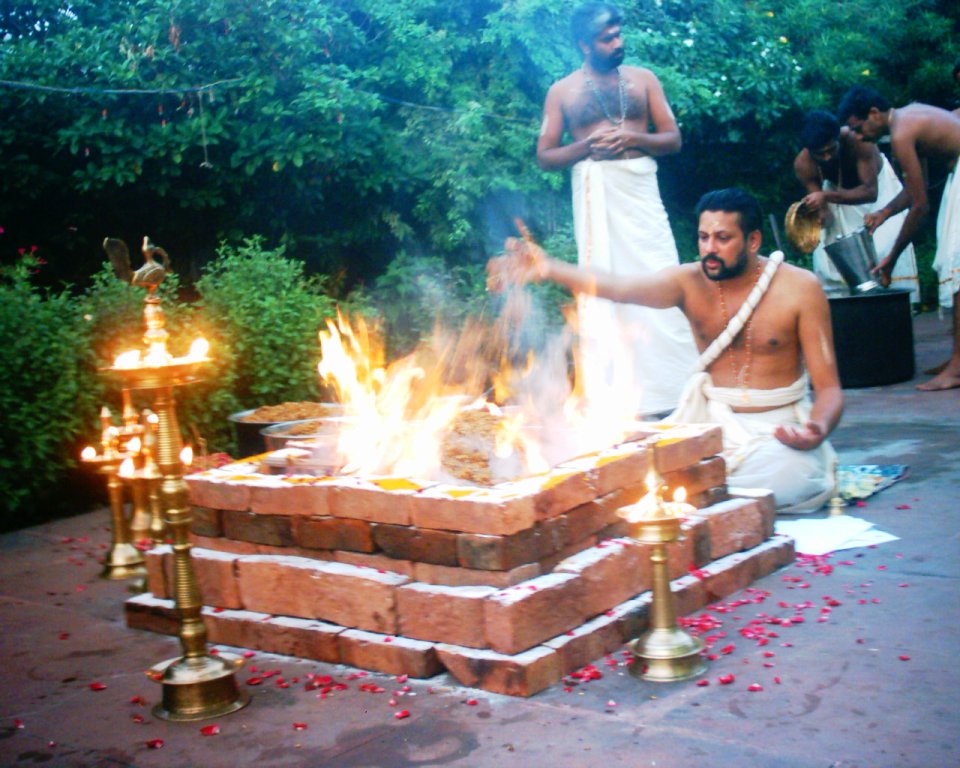|
Madhava Tirtha
Madhava Tirtha was a Hindu philosopher, scholar and the 3rd pontiff of Madhvacharya peetha. He succeeded Narahari Tirtha as the pontiff of the Madhvacharya peetha from 1333 - 1350. Life Works According to S. K. and Gurucarya, He wrote a commentary on ''Parasara Smriti'' called ''Parasara Madhwa-vijaya''. He also made commentaries on Rigveda, Yajurveda The ''Yajurveda'' ( sa, यजुर्वेद, ', from ' meaning "worship", and ''veda'' meaning "knowledge") is the Veda primarily of prose mantras for worship rituals.Michael Witzel (2003), "Vedas and Upaniṣads", in ''The Blackwell C ... and Samaveda. His disciple Sri Madhuhari Teertha founded a mutt which exists under the name ''Majjigenahalli Matha'' near Mulbagal. References Bibliography * * {{cite book, title = A History of the Dvaita School of Vedānta and Its Literature, Vol 1. 3rd Edition, first = B. N. Krishnamurti, last = Sharma, publisher=Motilal Banarsidass (2008 Reprint) , isbn = 978-81208157 ... [...More Info...] [...Related Items...] OR: [Wikipedia] [Google] [Baidu] |
Hinduism
Hinduism () is an Indian religion or '' dharma'', a religious and universal order or way of life by which followers abide. As a religion, it is the world's third-largest, with over 1.2–1.35 billion followers, or 15–16% of the global population, known as Hindus. The word ''Hindu'' is an exonym, and while Hinduism has been called the oldest religion in the world, many practitioners refer to their religion as '' Sanātana Dharma'' ( sa, सनातन धर्म, lit='the Eternal Dharma'), a modern usage, which refers to the idea that its origins lie beyond human history, as revealed in the Hindu texts. Another endonym is ''Vaidika dharma'', the dharma related to the Vedas. Hinduism is a diverse system of thought marked by a range of philosophies and shared concepts, rituals, cosmological systems, pilgrimage sites, and shared textual sources that discuss theology, metaphysics, mythology, Vedic yajna, yoga, agamic rituals, and temple building, among other to ... [...More Info...] [...Related Items...] OR: [Wikipedia] [Google] [Baidu] |
Pontiff
A pontiff (from Latin ''pontifex'') was, in Roman antiquity, a member of the most illustrious of the colleges of priests of the Roman religion, the College of Pontiffs."Pontifex". "Oxford English Dictionary", March 2007 The term "pontiff" was later applied to any high or chief priest and, in Roman Catholic ecclesiastical usage, to bishops, especially the Pope, who is sometimes referred to as the Roman Pontiff or the Supreme Pontiff. Etymology The English term derives through Old French ''pontif'' from Latin ''pontifex'', a word commonly held to come from the Latin root words ''pons'', ''pont-'' (bridge) + ''facere'' (to do, to make), and so to have the literal meaning of "bridge-builder", presumably between mankind and the deity/deities. The role of bridges in ancient religions, associated with resurrection, redemption and the Judgement Day is already well known. Uncertainty prevailing, this may be only a folk etymology, but it may also recall ancient tasks and magic rites asso ... [...More Info...] [...Related Items...] OR: [Wikipedia] [Google] [Baidu] |
Uttaradi Math
Shri Uttaradi Math (IAST:''Śrī Uttarādi Maṭha'') (also known as Uttaradi Peetha), is one of the main monasteries (matha) founded by Madhvacharya with Padmanabha Tirtha as its head to preserve and propagate Dvaita Vedanta (Tattvavada) outside Tulunadu region. Uttaradi Math is one of the three premier Dvaita monasteries or ''Mathatraya'' that descended from Madhvacharya in the lineage of Padmanabha Tirtha through Jayatirtha. After Jayatirtha and Vidyadhiraja Tirtha, Uttaradi Math continued in the lineage of Kavindra Tirtha (a disciple of Vidyadhiraja Tirtha) and later in the lineage of Vidyanidhi Tirtha (a disciple of Ramachandra Tirtha). Uttaradi Math is an important institution among the Madhvas and also deeply respected among the Vaishnavas and the other Hindus. Most of the Deshastha Madhvas and majority of Madhvas outside Tulu Nadu region are followers of this matha. Uttaradi Math has followers across Karnataka , Maharashtra, Andhra Pradesh, Telangana, Madhya Pradesh, ... [...More Info...] [...Related Items...] OR: [Wikipedia] [Google] [Baidu] |
Scholars From Karnataka
A scholar is a person who pursues academic and intellectual activities, particularly academics who apply their intellectualism into expertise in an area of study. A scholar can also be an academic, who works as a professor, teacher, or researcher at a university. An academic usually holds an advanced degree or a terminal degree, such as a master's degree or a doctorate ( PhD). Independent scholars, such as philosophers and public intellectuals, work outside of the academy, yet publish in academic journals and participate in scholarly public discussion. Definitions In contemporary English usage, the term ''scholar'' sometimes is equivalent to the term ''academic'', and describes a university-educated individual who has achieved intellectual mastery of an academic discipline, as instructor and as researcher. Moreover, before the establishment of universities, the term ''scholar'' identified and described an intellectual person whose primary occupation was professional research. In ... [...More Info...] [...Related Items...] OR: [Wikipedia] [Google] [Baidu] |
Madhva Religious Leaders
Madhvacharya (; ; CE 1199-1278 or CE 1238–1317), sometimes anglicised as Madhva Acharya, and also known as Purna Prajna () and Ānanda Tīrtha, was an Indian philosopher, theologian and the chief proponent of the ''Dvaita'' (dualism) school of Vedanta. Madhva called his philosophy ''Tattvavāda'' meaning "arguments from a realist viewpoint". Madhvacharya was born on the west coast of Karnataka state in 13th-century India. As a teenager, he became a Sanyasi (monk) joining Brahma-sampradaya guru Achyutapreksha, of the Ekadandi order. Madhva studied the classics of Hindu philosophy, and wrote commentaries on the Principal Upanishads, the ''Bhagavad Gita'' and the Brahma Sutras ('' Prasthanatrayi''), and is credited with thirty seven works in Sanskrit. His writing style was of extreme brevity and condensed expression. His greatest work is considered to be the ''Anuvyakhyana'', a philosophical supplement to his bhasya on the Brahma Sutras composed with a poetic structure. In som ... [...More Info...] [...Related Items...] OR: [Wikipedia] [Google] [Baidu] |
Samaveda
The Samaveda (, from ' "song" and ' "knowledge"), is the Veda of melodies and chants. It is an ancient Vedic Sanskrit text, and part of the scriptures of Hinduism. One of the four Vedas, it is a liturgical text which consists of 1,875 verses. All but 75 verses have been taken from the Rigveda. Three recensions of the Samaveda have survived, and variant manuscripts of the Veda have been found in various parts of India. While its earliest parts are believed to date from as early as the Rigvedic period, the existing compilation dates from the post-Rigvedic Mantra period of Vedic Sanskrit, between c. 1200 and 1000 BCE or "slightly rather later," roughly contemporary with the Atharvaveda and the Yajurveda. Embedded inside the Samaveda is the widely studied Chandogya Upanishad and Kena Upanishad, considered as primary Upanishads and as influential on the six schools of Hindu philosophy, particularly the Vedanta school. The Samaveda set important foundations for the subsequent India ... [...More Info...] [...Related Items...] OR: [Wikipedia] [Google] [Baidu] |
Yajurveda
The ''Yajurveda'' ( sa, यजुर्वेद, ', from ' meaning "worship", and ''veda'' meaning "knowledge") is the Veda primarily of prose mantras for worship rituals.Michael Witzel (2003), "Vedas and Upaniṣads", in ''The Blackwell Companion to Hinduism'' (Editor: Gavin Flood), Blackwell, , pages 76-77 An ancient Vedic Sanskrit text, it is a compilation of ritual-offering formulas that were said by a priest while an individual performed ritual actions such as those before the yajna fire. Yajurveda is one of the four Vedas, and one of the scriptures of Hinduism. The exact century of Yajurveda's composition is unknown, and estimated by Witzel to be between 1200 and 800 BCE, contemporaneous with Samaveda and Atharvaveda. The Yajurveda is broadly grouped into two – the "black" or "dark" (''Krishna'') Yajurveda and the "white" or "bright" (''Shukla'') Yajurveda. The term "black" implies "the un-arranged, unclear, motley collection" of verses in Yajurveda, in contrast t ... [...More Info...] [...Related Items...] OR: [Wikipedia] [Google] [Baidu] |
Rigveda
The ''Rigveda'' or ''Rig Veda'' ( ', from ' "praise" and ' "knowledge") is an ancient Indian collection of Vedic Sanskrit hymns (''sūktas''). It is one of the four sacred canonical Hindu texts (''śruti'') known as the Vedas. Only one Shakha of the many survive today, namely the Śakalya Shakha. Much of the contents contained in the remaining Shakhas are now lost or are not available in the public forum. The ''Rigveda'' is the oldest known Vedic Sanskrit text. Its early layers are among the oldest extant texts in any Indo-European language. The sounds and texts of the ''Rigveda'' have been orally transmitted since the 2nd millennium BCE. Philological and linguistic evidence indicates that the bulk of the ''Rigveda'' Samhita was composed in the northwestern region of the Indian subcontinent (see) Rigvedic rivers), most likely between 1500 and 1000 BCE, although a wider approximation of 19001200 BCE has also been given. The text is layered, consisting of the ... [...More Info...] [...Related Items...] OR: [Wikipedia] [Google] [Baidu] |
Scholar
A scholar is a person who pursues academic and intellectual activities, particularly academics who apply their intellectualism into expertise in an area of study. A scholar can also be an academic, who works as a professor, teacher, or researcher at a university. An academic usually holds an advanced degree or a terminal degree, such as a master's degree or a doctorate ( PhD). Independent scholars, such as philosophers and public intellectuals, work outside of the academy, yet publish in academic journals and participate in scholarly public discussion. Definitions In contemporary English usage, the term ''scholar'' sometimes is equivalent to the term ''academic'', and describes a university-educated individual who has achieved intellectual mastery of an academic discipline, as instructor and as researcher. Moreover, before the establishment of universities, the term ''scholar'' identified and described an intellectual person whose primary occupation was professional research. In ... [...More Info...] [...Related Items...] OR: [Wikipedia] [Google] [Baidu] |
Gulbarga
Kalaburagi, formerly known as Gulbarga, is a city in the Indian state of Karnataka. It is the administrative headquarters of the Kalaburagi district and is the largest city in the region of North Karnataka (Kalyana-Karnataka). Kalaburagi is 623 km north of the state capital city of Bangalore. It was incorporated into the newly formed Mysore State (now known as Karnataka) through the States Reorganisation Act in 1956. Kalaburagi city is governed by a Municipal Corporation and is in the Kalaburagi Urban Region. It is called a Sufi city. It has famous religious structures, like the Khwaja Banda Nawaz Dargah, the Sharana Basaveshwara Temple and the Buddha Vihar. It also has a fort built during the Bahmani rule. Other Bahmani monuments include the Haft Gumbaz (seven domes together) and the Shor Gumbad. Kalaburagi has the world's largest cannon. Kalaburagi has a few architectural marvels built during the Bahamani Kingdom rule, including the Jama Masjid in the Kalaburagi Fort. ... [...More Info...] [...Related Items...] OR: [Wikipedia] [Google] [Baidu] |
Philosopher
A philosopher is a person who practices or investigates philosophy. The term ''philosopher'' comes from the grc, φιλόσοφος, , translit=philosophos, meaning 'lover of wisdom'. The coining of the term has been attributed to the Greek thinker Pythagoras (6th century BCE).. In the Classics, classical sense, a philosopher was someone who lived according to a certain way of life, focusing upon resolving Meaning of life, existential questions about the human condition; it was not necessary that they discoursed upon Theory, theories or commented upon authors. Those who most arduously committed themselves to this lifestyle would have been considered ''philosophers''. In a modern sense, a philosopher is an intellectual who contributes to one or more branches of philosophy, such as aesthetics, ethics, epistemology, philosophy of science, logic, metaphysics, social theory, philosophy of religion, and political philosophy. A philosopher may also be someone who has worked in the hum ... [...More Info...] [...Related Items...] OR: [Wikipedia] [Google] [Baidu] |






.png)
